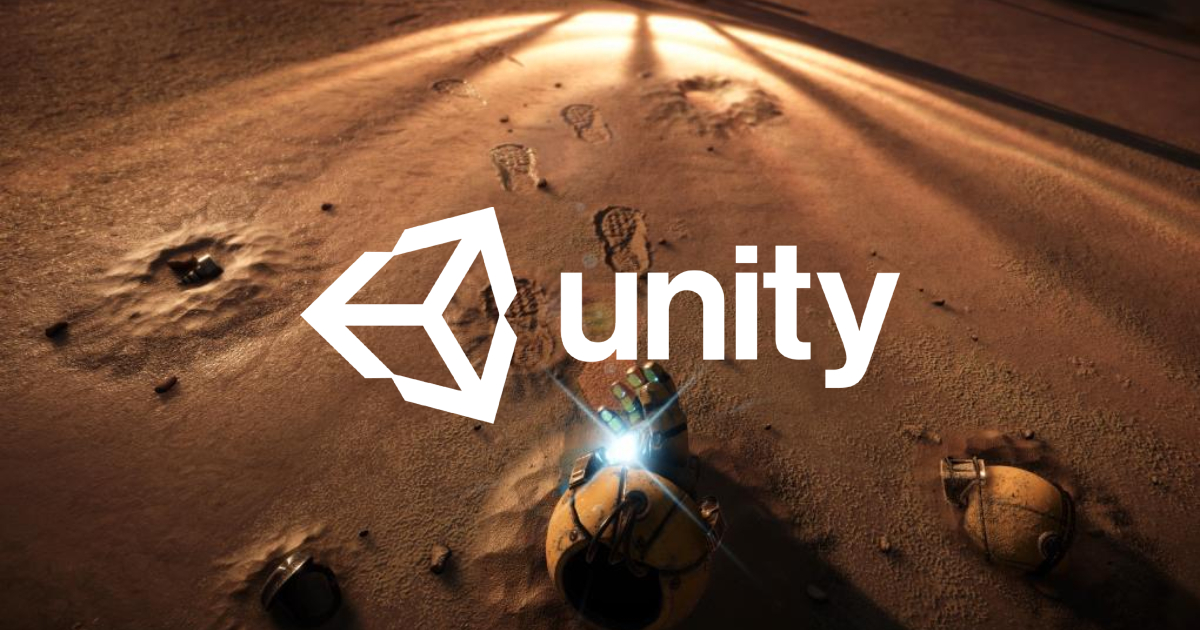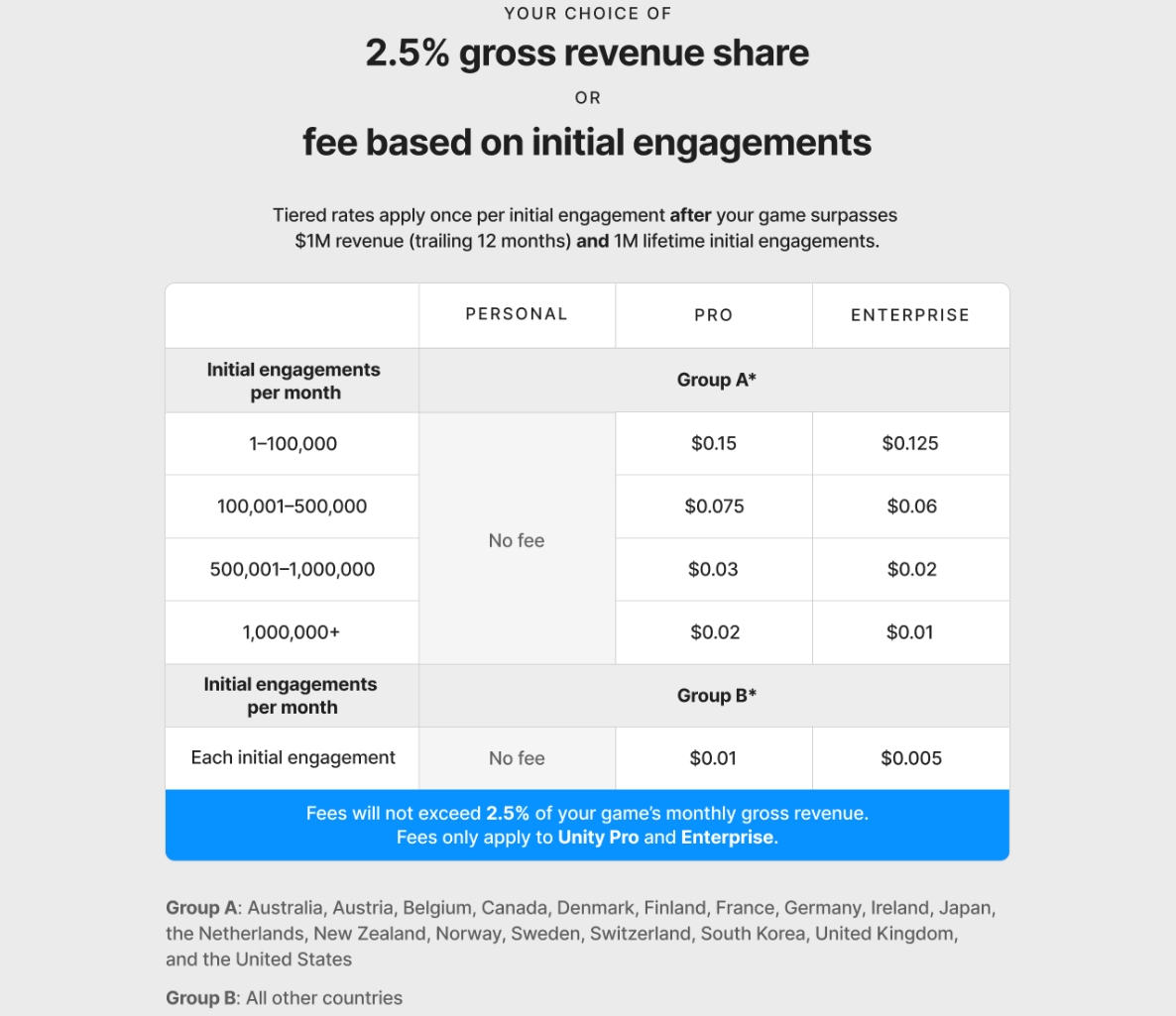Unity has finally shared an update to its controversial Runtime Fee model. Following massive backlash from game developers, the company has changed key aspects of the policy, exempting a large portion of customers from any fees and giving others options to choose from.

In a new blog post, Unity Create president Marc Whitten first apologized to the community, saying that “should have spoken with more of you and we should have incorporated more of your feedback before announcing our new Runtime Fee policy.”
Here is how the new version of the pricing model will work:
- Runtime Fee will only apply to developers using Unity Pro or Enterprise plans;
- All games with less than $1 million in revenue in the past 12 months won’t be subject to fees;
- Runtime Fee will only apply starting with the next Long Term Support (LTS) release in 2024 — all existing projects made with previous versions of Unity won’t be subject to fees (unless they are upgraded to a new version;
- Developers of games that are subject to the Runtime Fee will be able to choose either additional fees based on the number of new installs each month or a 2.5% revenue share;
- Only new engagements (after reaching revenue and install thresholds, and after January 1, 2024) will be counted, so the Runtime Fee won’t be charged for re-installs;
- All numbers will be self-reported by developers for more transparency, so Unity won’t track installs or any data using its own tools.
In addition, Unity Personal plan will not only be completely exempt from the Runtime Fee, it will also let developers remove the “Made with Unity” splash screen.
To help developers calculate the amount of the Runtime Fee types (revenue share or per-install fees), the company also launched a Runtime Fee Estimator.

The Runtime Fee will now only apply after a game hits $1 million in 12-month revenue and 1 million lifetime initial installs
“You are what makes Unity great, and we know we need to listen, and work hard to earn your trust,” Whitten wrote. “We have heard your concerns, and we are making changes in the policy we announced to address them.”
Unity also updated its FAQ to include the latest changes to the Runtime Fee. However, some aspects of the revamped pricing model remain unclear. That’s why the company will host a live chat today, where Whitten will be answering developers’ questions. So more details are expected later.
So to sum it all up, many developers won’t have to pay any fees at all, as the Runtime Fee will only apply to projects with over $1 million in trailing 12-month revenue. Plus, there is a choice between revenue share and per-install fees depending on what suits each developer best.
Another important change is that the Runtime Fee will now be forward-looking, not retroactive. This was one of the main points of criticism, apart from the controversial nature of per-install fees themselves and a serious breach of trust.
